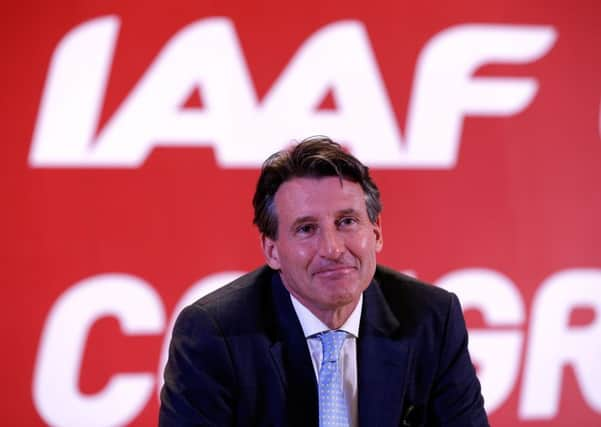Sebastian Coe welcomes debate on plan to rewrite record book


European Athletics announced on Monday that its ruling council had accepted a project team’s recommendations to overhaul the record lists and eliminate any doping doubts surrounding performances.
All pre-2005 records could be re-written under the new rules, which need to be ratified by governing body, the International Association of Athletics Federations (IAAF).
Advertisement
Hide AdAdvertisement
Hide AdAs several European records are also world records, the working group consulted the IAAF and the world governing body’s president Lord Coe.
These plans will now be forwarded to the IAAF “with the recommendation that the two organisations co-ordinate the implementation of new record ratification rules”.
The IAAF Council is expected to discuss the European rules at its next meeting in London on 31 July, five days before the start of the 2017 World Championships. And while Coe insists there is a long way to go in discussions, the 60-year-old is pleased the issue over dubious records has been brought to the fore.
“It’s important we have this discussion,” said Coe, speaking to BBC London.
“I spend a lot of time with athletes and they have all been talking to me for years about some of the records on the books. So I welcome the debate, there has to be a debate, and these proposals will come back to the Council and I look forward to, maybe, counter-proposals. I do think we have to start somewhere.”
If the proposals are accepted by the IAAF, a world record would only be recognised if it meets three specific criteria.
It must have been achieved at a competition on a list of approved international events where the highest standards of officiating and technical equipment can be guaranteed.
The athlete must also have been subject to an agreed number of doping control tests in the months leading up to it and the doping control sample taken after the record was stored and available for retesting for ten years.
Advertisement
Hide AdAdvertisement
Hide AdThe proposals have been met with disgust by some former British athletes – including world marathon record holder Paula Radcliffe – but Coe is more open to the idea.
“These proposals actually underpin three very important things,” added Coe, who holds two European records which will be retired under the new plans. “First of all it toughens up our stance on anti-doping; secondly it makes sure that world records are set in an environment where there’s proper measures and technology; and thirdly that the samples of those athletes that set a world record are going to be held for ten years.
“These are all important proposals, but they do need to be discussed. Clearly detail needs to come through and I want to hear from the athletes and the athletes will make their voices very clear, and there needs to be a global debate about this.”